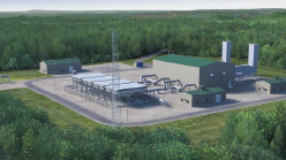This report provides a summary and analysis of the strategic, engineering, and economic factors that currently influence the selection of eletric motor drives (EMD) for natural gas compressors, and provides an industry-based consensus on the future use of EMD. The industry consensus was derived from a survey of INGAA Foundation members and other industry representatives who are recognized authorities on gas compression and drive systems.
The survey shows that while EMD have certain very desirable features (emission compliance, low capital and maintenance costs, controllability, etc.), the cost of electric power normally precludes their use in all but specific cases (e.g., when environmental issues are sufficiently critical to justify their added energy expense, or where electric power rates are unusually low). Industry respondaents indicated that fuel/power costs often constitute a large percentage (over 50 percent) of the unit’s life cycle costs, and that electric power rates on the order of 2 to 3.5 cents/kW hour would be required to make EMD cost competitive with present day gas turbine or engine drives.
Nevertheless, industry projections show that the use of EMD will maintain recent rates in the foreseeable future and will constitute some 17 to 25 percent of the six to seven million horsepower that must be added by the year 2010 to meet projected domestic gas demands. Gas turbine drives are projected to provide some 75 percent of this horsepower, with recip units playing a smaller role.
Virtually all of the negative evaluation factors for EMD were associated with "fuel" costs (i.e., the base cost of electric power, high demand charges, the cost of the transmission infrastructure required to get eletric power to the compressor site, and the inability to negotiate effective long-term "customer-service" oriented power contracts). So long as natural gas is valued primarily as a fuel, it seems unlikely that electric rates can compete – even with deregualtion of the electric power industry.





